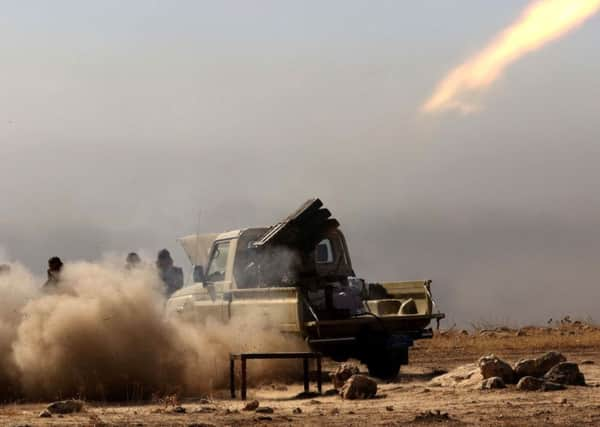Leader comment: Taking Mosul will force IS to change its tactics


Mosul is the last big prize that IS hold, it is the city from which they announced the creation of their caliphate in 2014. It means a lot to them and they might decide that this is a last stand. That will mean a long and arduous battle, close-quarter urban warfare is notoriously bloody and slow, and the civilians will suffer.
Of course the UN has to make plans for this contingency and the UN High Commissioner for Refugees has issued an appeal for an additional $61m (£50m) to provide tents, camps, and winter items such as blankets for displaced people inside Iraq and the two neighbouring countries. There are fear that residents could be used as human shields by IS and that as many as a million people could be forced to flee their homes. It has the makings of another humanitarian tragedy and surely the governments involved in the war against IS will ensure the UN have the money and supplies that they need.
Advertisement
Hide AdAdvertisement
Hide AdBut there may be another tactic that is attractive to IS. There is probably now within the organisation a realisation that the caliphate will not remain. This time. For the better pursuit of their long-term goals might IS decide that it is better to flee in to the desert with as many of the reported 10,000 fighters they have. There they can re-group and re-build. If they stand and fight what may be left?
But regardless of tactics and time there are two virtual certainties in this situation. The first is that Mosul will be re-taken by pro-government forces, it is only a matter of when and at what cost. The second is that IS will not be wiped out, but will turn purely in to a terrorist organisation, not a territory-holding army, and conduct a campaign of insurgency to the best of its abilities. The big question here is just how effective it can be and what resources it can command.
When IS first took over its towns and villages and cities there were reports of at least some broad support for them and there was a deep distrust of the government and its supporters. By many accounts that support has disappeared, and IS’s brutal regime has been uncovered for what it actually is. It is vital that the disaffection with Islamic State be maintained, all insurgent groups need the help and support of at least some of the indigenous population to be effective.
That is why it is vitally important that no sectarian violence occurs when towns are liberated from IS, and the undertakings given on this aspect must be delivered.
It is also equally important that there is a long-term plan to ensure the governance of these areas is as inclusive and equitable as possible.
It is in the interests of all the nations currently ranged against IS that these longer term plans are instigated and also that they ensure they continue. History tells us that the aftermath and the structures set up in the aftermath need to be robust to ensure that what remains of IS is not allowed to thrive.